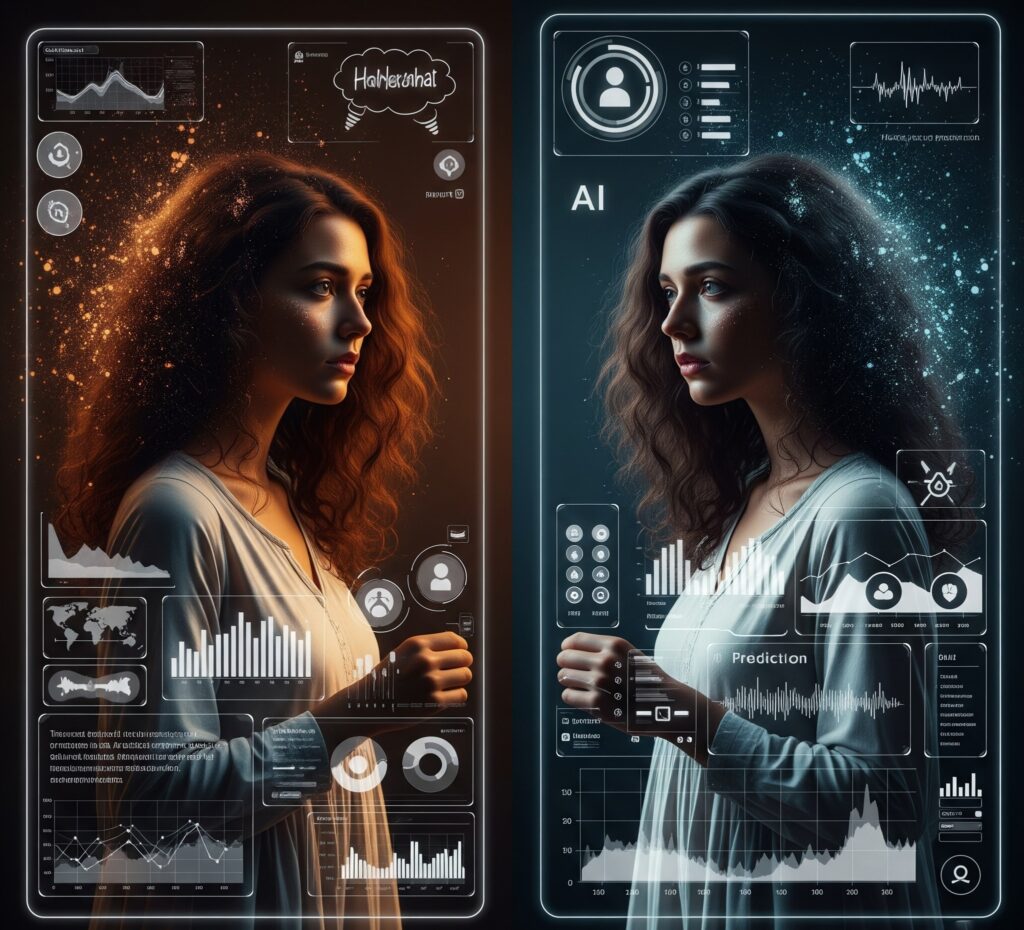In the ever evolving landscape of artificial intelligence, one of the most compelling and unsettling questions of our time is this: what happens when AI knows you better than you do? As algorithms become more sophisticated, data more abundant, and computing power more accessible, machines are starting to develop an intimate, and often startling, understanding of human behaviour, preferences, emotions, and even future decisions. This new era of hyper personalisation and predictive insight challenges not only our relationship with technology but also our very concept of identity and autonomy.
The Rise of Predictive Personalisation
Over the past decade, personalisation has moved from a marketing buzzword to a digital necessity. Platforms like Netflix, Amazon, and Spotify have perfected recommendation engines that seem to anticipate our next move. Social media feeds are tailored so precisely that we often see posts and adverts that feel uncannily relevant. At the heart of this transformation is AI driven data analysis.
By collecting data on everything from our browsing habits to our shopping preferences, AI algorithms can construct detailed behavioural profiles. These profiles aren’t just reflections of what we have done; they are predictive tools that can forecast what we are likely to do next. In some cases, these systems outperform humans in self assessment. For example, a study from Stanford University demonstrated that algorithms analysing Facebook likes could predict a user’s personality traits more accurately than their close friends or family.
The Paradox of Self Knowledge
The idea that a machine could understand our preferences or emotional responses better than we do ourselves strikes at the heart of self identity. Humans are notoriously inconsistent in recognising their own motives and desires. Cognitive biases, emotional fluctuations, and social pressures often cloud our self perception. AI, by contrast, is objective, tireless and data driven.
This objectivity, however, comes with its own limitations. While AI might predict that you’ll prefer a particular product or make a certain decision, it does so without genuine understanding or empathy. The machine doesn’t “know” you in the way a human does; it correlates patterns and probabilities. But in practical terms, this might not matter. If the AI’s prediction consistently aligns with your actual behaviour, its lack of empathy becomes irrelevant to its effectiveness.
Implications for Privacy and Consent
One of the most significant concerns raised by AI’s growing insight into individual behaviour is the erosion of privacy. Much of the data used to fuel predictive algorithms is collected passively, often without explicit consent. Even when users do consent, it’s usually through dense and confusing privacy policies that obscure the true extent of data collection.
As AI systems become more integrated into daily life, the boundary between voluntary disclosure and inferred behaviour becomes increasingly blurred. For instance, your smart home may learn your routines, your health apps may monitor your biometric data, and your wearable devices may track your physical and emotional states. These insights can be incredibly useful for improving health, efficiency and safety but they can also be exploited for commercial or political gain.
Emotional Manipulation and Behavioural Nudging
When AI understands your emotional state, it can tailor interactions in ways designed to manipulate your behaviour. This is already happening in digital advertising, where algorithms decide not just what ad to show you, but when to show it, based on your mood and likelihood of engagement.
In more extreme cases, this can lead to behavioural nudging. AI systems can be used to influence everything from consumer choices to political opinions. This raises ethical concerns about manipulation and autonomy. If a machine knows the precise moment you’re most vulnerable to persuasion, does it still count as a free choice?
Benefits of a Hyper Personalised World

Despite the risks, there are clear benefits to living in a world where AI understands us deeply. In healthcare, predictive algorithms can anticipate medical issues before symptoms appear, allowing for early intervention. Mental health apps can detect signs of anxiety or depression through subtle changes in speech or typing patterns. In education, adaptive learning platforms can tailor content to individual learning styles and paces.
In commerce, hyper personalisation can improve customer satisfaction and reduce decision fatigue. Rather than being overwhelmed by options, users can be presented with choices that genuinely align with their preferences and values. In theory, this makes for more efficient, enjoyable and relevant experiences.
The Danger of Echo Chambers
However, this same personalisation can also isolate individuals in digital echo chambers. By continuously reinforcing existing preferences and beliefs, AI systems can limit exposure to diverse perspectives. This is particularly dangerous in news and information ecosystems, where algorithmic curation can entrench polarisation and misinformation.
When AI knows what we want to see and hear, it may stop showing us what we need to see and hear. The result is a curated reality that may feel comfortable but lacks the friction and challenge necessary for growth and understanding.
The Illusion of Free Will
One of the most profound philosophical implications of AI knowing us better than we know ourselves is the challenge it poses to the concept of free will. If a machine can accurately predict your next move based on previous behaviour, does that suggest your decisions are determined rather than chosen?
This deterministic outlook can be unsettling. It implies that our sense of agency might be more illusory than we care to admit. On the other hand, recognising patterns in behaviour doesn’t necessarily negate choice. It might simply provide a clearer map of the influences acting upon us a map we can choose to follow or resist.
Human AI Collaboration Over Control

Rather than framing the rise of predictive AI as a threat to autonomy, there is an opportunity to view it as a form of partnership. Just as a GPS helps us navigate unfamiliar terrain, AI can help us better understand our own patterns, triggers, and goals. It can serve as a mirror, offering insights that might otherwise be hidden by emotion or habit.
The key is to maintain human agency in the loop. AI should be a tool for empowerment, not control. Transparency, ethical design, and user consent are critical in ensuring that these systems serve human interests rather than exploit them.
Regulation and Responsibility
With great predictive power comes great responsibility. Governments, technologists, and civil society must work together to create ethical frameworks and regulations that govern how AI systems are built and used. Transparency in algorithmic decision making, limitations on data collection, and accountability for misuse are essential to building public trust.
There is also a need for digital literacy. As AI becomes more embedded in everyday life, individuals must understand how their data is used and how algorithms shape their choices. Education and awareness are key to ensuring that people remain active participants in their digital lives.
Final Thoughts: Embracing the Mirror
The idea that AI could know us better than we know ourselves is both fascinating and frightening. It challenges our notions of identity, autonomy, and free will. But it also opens the door to deeper self understanding and more tailored, meaningful interactions with the digital world.
By embracing this technological mirror with caution and care, we have the opportunity to not only know ourselves better but also to build systems that reflect our highest values rather than our base impulses. The future will not be shaped solely by machines, but by the choices we make in how we design, deploy, and relate to them.
In the end, the question is not just whether AI knows us better than we do, but whether we are ready to face what it shows us.
Book a FREE consultation with Myk or one of the team today on 01325 939 838 and let’s build something brilliant together.
Thanks for reading,
Myk Baxter,
eCommerce Consultant
The post What Happens When AI Knows You Better Than You Do appeared first on eCommerce Expert.





